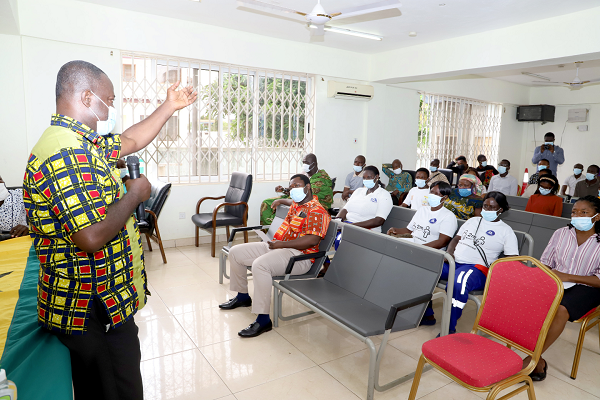
CSIR to clean Gt. Accra beaches
The Water Research Institute of the Council for Scientific and Industrial Research (CSIR-WRI) has begun a clean-up exercise in four coastal communities identified to be hotspots for plastic and waste menace in the Greater Accra Region.
The exercise will be mainly carried out in La, Teshie, James Town and Sakumono.
The programme, being sponsored by the National Geography Society, is part of the CSIR-WRI corporate social responsibility towards the attainment of the relevant Sustainable Development Goals (SDGs) of the UN.
The fund for the project was awarded to the CSIR-WRI through Dr Pennante Bruce-Vanderpuije an early Carrier Research Scientist with the CSIR-WRI.
Stakeholders meeting
At a stakeholders meeting at Teshie in Accra, a Principal Research Scientist, Dr Kwadzo Asante, said the exercise would focus on the collection of plastic and other wastes along the coastal areas and beaches, transportation and disposal of waste in the designated landfill sites by zoomlion, installation of trash containers and cans, and engagements with communities to identify suitable waste management practices.
Dr Asante said members of the selected communities would be educated on the effective management of their waste, proper disposal, impact of reusing and recycling plastic wastes, and effective preventive actions to manage pollution by marine litter and micro plastics.
He added that the forum would also create awareness on the impact of waste disposal on the fishery and tourism sectors, and the hazardous impact of waste and chemicals on human health and the environment in general.
Dr Asante indicated that the initiative would also help the settlers to keep the beach lines clean and free from plastic waste, adding that it would also enable them to acquire positive behavioural patterns to induce effective and sustainable collection and disposal of waste.
The Deputy Coordinating Director of the Ledzokuku Municipal Assembly, Mrs Confidence Logo, said so much harm had been caused to the sea by the activities of some fishermen and those who indirectly depended on the sea.
She said society should not look on unconcerned but to do whatever they could to save the sea from pollution and to conserve marine life.
She, therefore, urged all stakeholders to get involved in protecting the coastline for generations yet unborn.
Teshie Akwaashong Tse, Nii Mensa Tukorwunin II, thanked the CSIR for selecting the community as part of the project.
He said a lot of times, society turned to blame coastal dwellers largely for the pollution of the sea, “leaving out a significant proportion of individuals in the hinterlands who dump their plastic waste into gutters and drains which find their way into the sea.
“We should confront the issue by educating every Ghanaian that it is wrong to dump waste into river bodies,” he said.
Process
The Principal Technologist at the CSIR-WRI, Mr Divine Walanyo, explained that when plastic was dumped in the ocean, it affected the natural system of the sea and consequently affected the living organisims, including fishes that feed on them.
He said the recent fish species which were washed ashore in some coastal areas in the country was as a result of sea pollution, which resulted in the fish being stressed due to the lack of oxygen.
He said when fishes kept eating plastic deposited in the sea, the plastic would be lodged in their system, and in the long run be consumed by humans, which posed health risks for humans.
